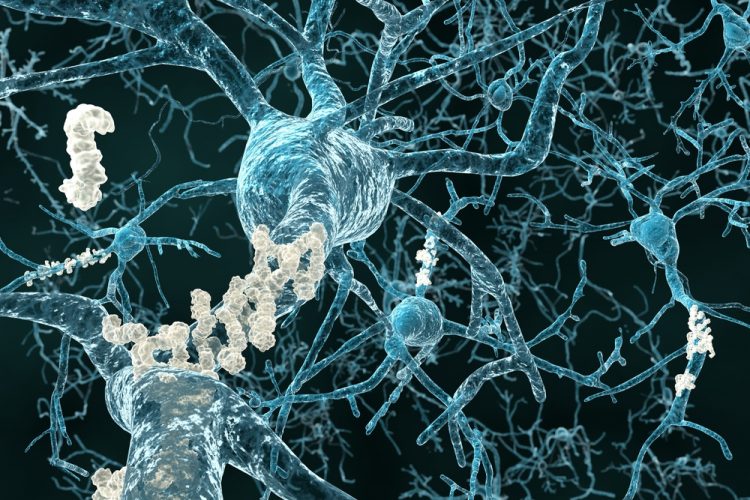Metal-based molecule could inhibit build-up of Alzheimer’s peptides
Posted: 15 July 2021 | Anna Begley (Drug Target Review) | No comments yet
UK researchers have created a metal-based molecule that inhibits the build-up of Alzheimer’s-associated peptide, amyloid-β, in lab tests.


A research team at Imperial College London, UK, have developed a metal-based molecule that inhibits the build-up of a peptide associated with Alzheimer’s disease in lab tests, known as amyloid-β. Some metal-based molecules have already been designed to prevent the build-up of amyloid-β, however they have often proven toxic to cells or are unable to cross the blood-brain barrier (BBB).
The team from the Departments of Chemistry and Bioengineering at Imperial College London thus developed a metal-based molecule that is highly effective at preventing the build-up of amyloid-β but is non-toxic to human brain-like cells. The molecule is centred around a metal cobalt, surrounded by organic molecules that form a complex that bind to amyloid-β peptides, preventing them from binding to each other and building up. It also incorporates chemical groups that prevent it from being taken up into human nerve cells, reducing its toxicity.
The researchers demonstrated that the molecule can cross the BBB in mice by using a technique involving microbubbles and focused ultrasound. They injected the molecule alongside microbubbles into the veins of mice. Ultrasound was then directed at the brain, causing the microbubbles to move back and forth, thereby opening the BBB and allowing the molecule to enter the brain in a non-invasive and targeted manner. The team were able to focus the ultrasound on the hippocampal region of the brain which is strongly impacted by amyloid-β build-up in the early stages of Alzheimer’s. They also demonstrated how specific the ultrasound targeting can be by delivering the molecule only to the left hippocampus.
First author Tiffany Chan reported: “Very few metal-based molecules have been investigated as potential inhibitors of amyloid-β build-up because of toxicity issues and difficulty crossing the BBB. The molecule we have designed is able to interfere with amyloid-β and seems non-toxic, and it can be delivered across the BBB using ultrasound, which means you do not need an invasive procedure.”
The molecule was shown to be well tolerated by the mice as they showed no ill effects after several weeks. Co-author Professor Ramon Vilar concluded: “This study shows the potential that metal-based molecules have in preventing amyloid-β aggregation. The new compound will be studied in more depth to establish whether it can also prevent amyloid-β build-up in mice without having unwanted side effects.”
The study was published in Chemical Science.
Related topics
Disease research, In Vivo, Molecular Biology, Molecular Targets, Neurosciences, Small Molecules, Target molecule, Therapeutics
Related conditions
Alzheimer’s disease
Related organisations
Imperial College London
Related people
Professor Ramon Vilar, Tiffany Chan


